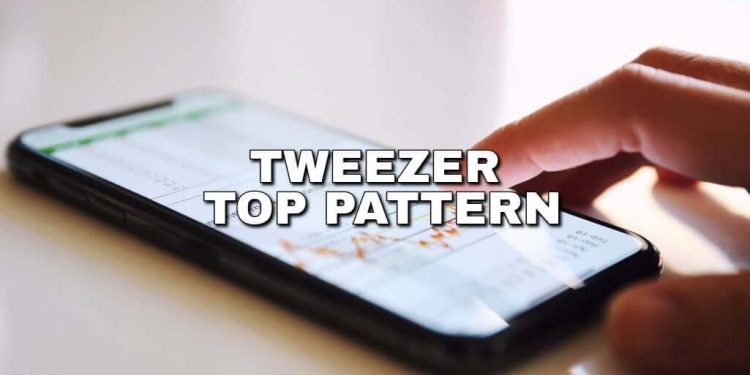What is the tweezer top pattern and how to use it?
Discover the intricacies of the tweezer top pattern, a pivotal technical analysis tool in candlestick charting that pinpoint major market turns. The tweezer top candlestick pattern, often spotted by its similar high, is a bearish reversal pattern that emerges when bullish momentum stalls, signaling traders to set a stop loss or brace for a potential downturn.
Opposite to this, the tweezer bottom candlestick pattern heralds a bullish reversal, offering a glimmer of hope after a downtrend with its matching lows.
key takeaways
Tweezer top patterns — the bearish tweezer with its dark or red candle hitting a resistance level, and the bullish tweezer suggesting a recovery — guide traders in making calculated moves.
They belong to a family of reversal candlestick patterns, which also includes the dark cloud cover, serving as a crystal ball into the market’s next shift.
By analyzing tweezer top and bottom candlesticks, trend traders gain insights into top and bottom patterns, arming themselves with foresight to maneuver through the waves of market uncertainty.
Definition and meaning
Tweezers top pattern and tweezers bottom pattern are reversal candle patterns. They indicate a reversal in price movement. Both refer to two candle formations occurring at the dying stage of a trend.
Tweezer’s top became especially popular after the release of Steve Nison’s book Japanese Candlestick Charting Techniques.
The tweezer top pattern often correlates with other bearish reversal patterns like the bearish engulfing pattern, dark-cloud cover, or shooting star candle, reinforcing the signal for a shift in trend direction.
Conversely, its counterpart, the tweezer bottom pattern, aligns with bullish reversal patterns like the bullish engulfing pattern, piercing pattern, or hammer candle.
Its confirmation with other reversal patterns like the dark-cloud cover or shooting star further validates its significance in predicting trend reversals in the market.
What do tweezer patterns indicate?
In trading chart analysis, tweezers are a type of candlestick pattern that can indicate potential reversals in the market. They have two pattern forms: the tweezer top and the tweezer bottom.
Tweezers topping pattern: This pattern typically indicates a bearish reversal. It occurs during an uptrend when two or more consecutive candlesticks have practically the same high point, signaling that the market is struggling to push prices higher.
If traders recognize a tweezer top, it suggests that the buying pressure is waning, and sellers may be taking over, potentially leading to a price decline.
Tweezer bottoming pattern: Conversely, this pattern suggests a bullish reversal. It appears during a downtrend where two or more consecutive candlesticks touch the same low point, indicating strong support and a failure of the market to push prices lower. This can imply that selling pressure is diminishing and buyers may be gaining strength, potentially leading to a price increase.
What is the tweezer top pattern in technical analysis?
The tweezer top pattern in trading is a bearish reversal signal that suggests a potential downward move in the price.
It forms when two or more consecutive candlesticks have matching highs or nearly the same price level at the top, resembling a pair of tweezers. This pattern typically occurs after an uptrend, indicating that buying pressure is fading and sellers are starting to take control.
For traders, the tweezer top is important because it helps them identify possible points to exit long positions or consider entering short positions.
The formation consists of two parts: the first candle is a bullish candle, showing a price increase.
The second candle is a bearish one, which fails to push higher than the bullish candle’s high and closes roughly around the same level or lower. This top pattern warns traders that the current trend may be weakening and a reversal is on the horizon.
How to trade the Tweezer top pattern?
Candlestick patterns like tweezers often appear in financial markets. Their significance varies with market conditions. If tweezers form during a trend’s pullbacks, they suggest a good entry point. They show the pullback might have ended and prices could return to the trend.
Using tweezers to enter trades during a trend can increase their effectiveness. Set a stop loss below the low of a bottom pattern. For a top pattern, place it above the high. Tweezers alone don’t suggest profit targets, so use the trend and momentum to decide these.
In an uptrend, bottom tweezers during a pullback suggest an entry point, marked by a green circle. Set the stop loss just under the pattern’s low, as the red line shows. This stop placement means potentially small losses if the trade fails.
Combine tweezers with overall trend analysis and other trading indicators to find the best trade spots. Tweezers near key support or resistance levels are also compelling, suggesting prices may soon move away from that area.
Conclusion: Importance of tweezer top pattern
The Tweezer pattern represents one of the most vital indicators when a strong switch in momentum occurs between the first and the second candle. In trading, these chart patterns are useful for indication of the end of a pullbacks. They are the signals that a trade is in the trend’s overall direction. You can place stop-loss below the bottom of the tweezer or above its top.
However,there is no perfect chart analysis pattern. And tweezers don’t always announce a reversal in trend. Use Dojis that occur after the pattern to validate short term reversal signals. Practice on a demo both spotting and trading tweezers before starting tweezers trades with real money.
The post What is tweezer top pattern and how to use it? appeared first on FinanceBrokerage.






